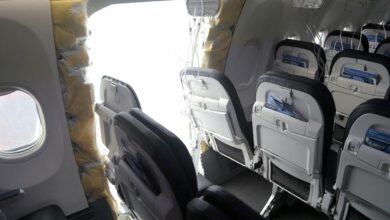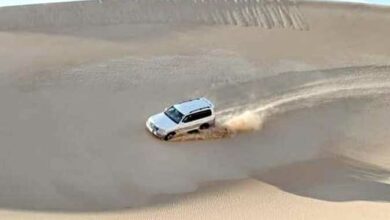Summer’s started, the sun is shining in many corners of the world, and a feeling for escape follows you from morning to sunset. You want to go out there, get away from your daily routine and enjoy your freedom. One solution: put on your backpack and get ready to step into the world of wild travelers.
There are different types of backpacking. One is hiking and discovering wild areas with just a backpack. This requires physical preparation and proper equipment, such as torch, first aid kit, anti-insect spray, antibacterial lotion and sun cream. Another type is to go from one country to another discovering cities and places, but not necessarily hiking.
If it’s your first time backpacking, you certainly have a mixture of fear, excitement and worries. Your main worry should be getting a new and lasting addiction of the type that’s not bad for your health and it doesn’t cost much.
First, pick the city you want to start with, how long you want to travel for and your budget. I’d advise booking a return ticket for both long-term and short-term trips, to avoid paying a horrendous amount of money for a last minute ticket. Being aware of your trip's length means you will be able to manage your budget appropriately and avoid the I-am-never-going-home idea (it will enter your mind for sure).
Yes, even though you’re intrepid and you feel the great wild taking over your body and mind, just in case you fail at finding direction with a compass or the sun, a map might be useful. Plan roughly where you’d like to go and make sure it fits your budget. Yet keep in mind that there is no point in planning everything in advance – you probably won’t follow your itinerary.
Indeed, you know you’re becoming an experimental backpacker when you stop thinking about your next stop. Like your ancestors, follow the wind or your heart. Too much thinking is a waste of time and energy. Your path will cross must-see things that locals, fellow backpackers or hostel staff tell you about. All of a sudden, you’ll head in the opposite direction than originally intended, skip places and discover others you’ve never heard that are much better than the planned ones. That’s one of the numerous joys of backpacking.
Make sure you know about the weather of the region you’re going to. Then pack: two of each item you need: t-shirts, jumpers, underwear, socks, pants, shorts, shoes (trekking and sneakers), and a pair of flip-flops. If you’re going on a short trip you can bring more. A sleeping bag is good, but a silk sleeping bag is lighter and warm enough for summer. Buy a fast drying towel made of microfiber, which takes no room and is very light.
It’s really essential to make sure your backpack isn’t fully loaded or too heavy. You might have to carry it up or down a hill, or for a couple of hours – that might happened particularly if you have a bad sense of direction (like me). Keep some spare room for stuff you’ll buy while traveling. Once everything is packed, lock your backpack with an iron wire, or a simpler lock if you feel that's enough, but erring on the side of too much safety is often wiser.
Equip yourself with the basic backpacker tool: an updated tourist guide covering the region you’re going to. I recommend the Lonely Planet guides; they’re always very clear and provide all the information needed to go from one place to another, understand the culture and the people, and give the best advice on accommodation, sights and places to eat.
Backpacking on your own might be scary at first. As long as you follow your common sense you can’t go wrong unless you're terribly unlucky. The golden rule is to know where your next destination is and how to get there. Just get organized the day before you decide to leave a place.
Usually if you stay in a hostel the staff will help you. If you decide to stay with “couch hosts,” via www.couchsurfing.org, ask your host. They must know where the train or bus station is. From that point you can figure out easily how to get somewhere.
Because a language barrier can makes things complicated, write things down. Your Bosnian or Chilean accent might not be good enough for the locals to understand, so always have a pen and paper with you to write down what you want to ask if necessary.
Beware when traveling in public transport such as train or buses – people usually have time to check out how to steal stuff from your bag. If you travel overnight, always sleep on your bag, and keep an undercover hidden pocket on you. If you're unlucky enough to get robbed, remember that it’s terrible but not the end of the world because things can be replaced.
For accommodation, you’ve got three options: hostels, camping or couch surfing. If you decide to stay in a hostel, check its reputation online – the best website is www.hostelworld.com. They charge you one euro every time you book a room. If you’re on the cheap, find the hotel number online and make a reservation over the phone. They’ll come up with the usual “we need a deposit of $xxx, could you transfer the money by tomorrow?” Just say that it’s pointless because a transfer from wherever you’re from to wherever the hostel is will take at least three days (which is true), and by the time they receive your deposit, you might have stayed there and gone on somewhere else.
Talk to the staff and see what’s around the city. You might end up in one of those fantastic places where tourists are scarce and where mother nature and locals provide beautiful scenery.
You shouldn’t be too cheap on hostels, you have to have one that fits your expectations. If you want to chill, get a quiet one; if you want to meet people and party, then find one accordingly. In most cases it's best to not book for more than one night, so that you dislike the hostel, you can find another one.
In general, hostel employees in different countries know each other, so do not hesitate to follow their advice for your next destination.
If you decide to use www.couchsurfing.org, again read the reviews and contact people in advance. Don’t worry too much about being hosted by a rapist, a serial killer or whatever, for as far as I know there has never been any problem with hosts or surfers. Couch surfing is a small community of travel addicts. Even once you’ve met your host, nothing forces you to stay with them. If you don’t feel safe, leave and check in somewhere else.
Make sure you always have LE500 on you in case of an emergency. It’s heartbreaking, but you might at some point have to spend this amount of money to stay in a hotel (because you can’t trust your host, or if something goes wrong, or just because you need to relax in a comfortable and homely place for one night – being blue happens even to the unconditional backpackers).
If you’re a photographer, remember to save your pictures on an online database such as Dropbox. It would be such a shame to lose them if your camera broke or got stolen.
If you go to what can be called, or used to be, an unsafe country (for instance the Balkans or Eastern Europe, or some parts of South America or the Middle East), talk with locals and listen to their advice. In other words, avoid land mines in the Balkans and the Columbian jungle, but also inadvisable Parisian suburbs or Mafia districts in Italy. It’s common sense, but it can’t be said too many times.
Locals may try to lure you into tourist traps. If you have your backpack with you, TOURIST is written on your forehead, which equals CASH. This heightens the risk of being bothered on crowded streets or lit-up streets at night. People may stare at you, but remember you’d probably do the same if you saw someone walking around with a backpack in your own city.
To prevent any big trouble, get a hidden pocket to tie around your hips. If anything happens, you still have cash, bank cards and a passport on you, and that’s really all you need. The rest is material; you’ll realize this while traveling. If you don’t feel safe, keep pepper spray within reach just in case.
Never forget that spending a couple of euros in a taxi might sometimes be wiser than being too cheap. If at any time you feel unsafe, jump in and tell the driver to drive away.
Alone or with others, backpacking is thrilling and definitely worth doing. Finally, if you travel alone, no worries, you will rarely be lonely – the best thing about backpacking is meeting people from all around the world, on the other side of your continent or of the globe, who are passionate about the same thing: traveling and having fun.




